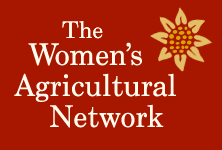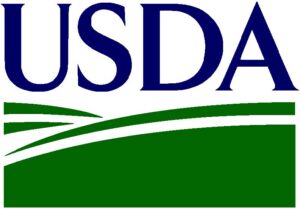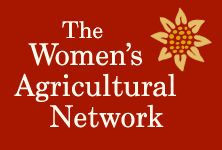Five days. 34 people. 15 countries. Four languages. One classroom and a few farms. United.
The WAgN Blog starts 2014 with a post from Vermont Farmer Mimi Arnstein, who is spending the cold months traveling and learning in Latin America. Read on for her reflections on her recent experience at an international agriculture conference in Cuba.
Something happens in Cuba for me that I cant explain, but when I return again the same feelings come back. 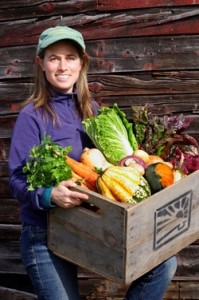 My scepticism is erased as the guitars play and my companeros y companeras sing songs about Che Guevara and liberty. Here I feel a part of something bigger with the revolutionary slogans painted on walls, with history so salient, with la lucha (the struggle) very alive, without fear in the streets at night and without the internet.
My scepticism is erased as the guitars play and my companeros y companeras sing songs about Che Guevara and liberty. Here I feel a part of something bigger with the revolutionary slogans painted on walls, with history so salient, with la lucha (the struggle) very alive, without fear in the streets at night and without the internet.
The Cubans say, “We dont share our leftovers because we dont have any leftovers. But we share our knowledge, our solidarity and our love.”
I had the honor to attend a training on the “Campesino a Campesino”, or farmer to farmer, methodology used in Cuba to encourage and strengthen agroecological practices. The philosophy of this approach is similar to ours in Vermont — we too recognize that the best teachers of farmers are other farmers. In Cuba they have an impressive structure of support which includes easy access to land, growers cooperatives, agronomist technicians and role model farmers. With very little access to external inputs due to the economy and the US embargo, Cuban farmers must make do with what they have from producing worm compost to on-farm breeding of biocontrols.
This self-sufficiency provides lessons to any of us seeking to improve a closed cycle on our farms. 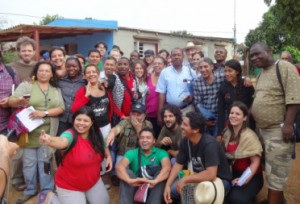 Thus activists and farmers from Mozambique to Mexico, Argentina to Quebec, Panama to Haiti gathered to learn, exchange ideas, and promote a common vision of regional food sovereignty. Top concerns are sustainable agricultural practices, seed safety and climate change.
Thus activists and farmers from Mozambique to Mexico, Argentina to Quebec, Panama to Haiti gathered to learn, exchange ideas, and promote a common vision of regional food sovereignty. Top concerns are sustainable agricultural practices, seed safety and climate change.
But what struck me most of all, and what I want to carry back with me to my work in Vermont, is a global and politicized view of sustainable agriculture. For me as a Vermont farmer, organic agriculture is about treating the environment properly, feeding my community, and keeping the land active. This feels like the right thing to do, but also a priviledge.
For other farmers around the world, agro ecology or sustainable agriculture is about much more. It is about liberation from colonialism and subjugation by militaristic governments and controling corporations. It is about empowering peasants to become self sufficient, to strengthen communities, to gain some control over their lives, to fight agains the loss of their land and water rights, to have not only the ability but a reason to stay in the countryside. Agroecology is about attacking the predominant model of dependence, debt and chemical use. It is respect and care for the earth. It is about producing healthy food for the people. It is about building autonomy outside of the corporate model. Yes, it is about caring for the soil, about plant and animal diversity, about seed saving and evading erosion. But there is a profoundly active link between the ecological, the cultural and the political.
Each attendee at the training was of course from a particular country and heritage but many also consider themselves “internacionalistas”. They understand their efforts belong to a broader context, a larger movement in which solidarity and working together is key to success. The motto called out often that week, “Globalicemos la lucha! Globalicemos la esperanza!” (Globalize the struggle! Globalize hope!) was a call to widen our work.
The Cubans have a saying, “La mesa esta servida,” meaning: The table is set. What we do with it is up to us. Social and political transformation is possible through our work with the land, with our customers and community, with our farm workers. I think a political and ecological blend represents the best roots of our movement in Vermont, the original vision and motivation. I would like us to reconnect with this inspiration, to gain a global perspective of our work, to see ourselves as active participants in a struggle that is larger than our state.
A Cuban farmer says, outstretching his arms, “These hands I have are from working the land.” I too have hands like that. I have a vision of all our hands piled on top of one another, diferent colors and sizes, stacked to the sky. We can achieve what we dream.
The table is set.
Mimi Arnstein
http://www.mimiarnstein.com

